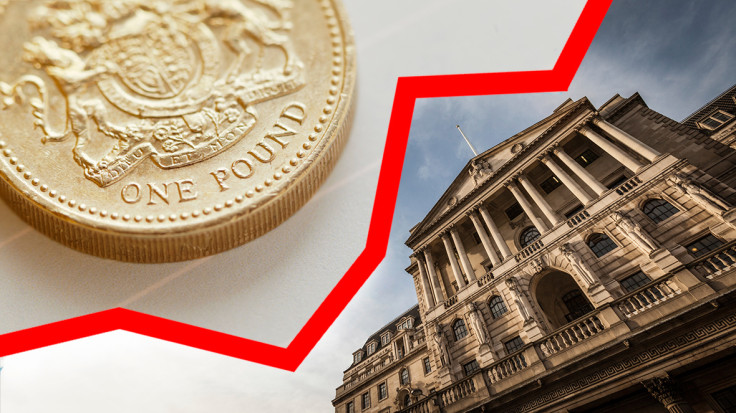'Super Thursday' or Damp Weekday: Pound slumps on Mark Carney's comments
Sterling tumbles below €1.11 as Bank of England holds fire on interest rates.

The pound slumped on Thursday (3 August), after the Bank of England's voted 6-2 in favour of keeping interest rates unchanged at a record low of 0.25%.
The benchmark rate had been stable at 0.5% from March 2009 to August 2016, when the Monetary Policy Committee decided to reduce it by 25 basis points, in the wake of dire survey data following the Brexit vote.
Sterling had hit an 11-month high of $1.3234 in early trading, but fell sharply after the announcement. By 2pm BST, the pound was 0.78% lower against both the dollar and the euro, trading at $1.3118 and €1.1062, as the common currency moved towards its highest level against sterling since November last year.
"The immediate reaction of the pound to the BoE's inaction may be overdone a little bit," said Fawad Razaqzada, market analyst at Forex.com.
"However, the dollar selling also looks overdone, at least for the time being. Speculators have evidently reduced their short dollar positions against a number of major currencies in the past few days, most notably against the commodity currencies, ahead of key US data in the coming days."
Jake Trask, FX research director at OFX, added:"Sterling tanked as the BoE decided to hold interest rates.
"Ongoing concerns around Brexit combined with questions about wage growth to hit the pound hard. The chances of a 2017 rate hike now look dead and buried."
The BoE also cut its headline growth projection for this year from 1.9% to 1.7%, while forecast for growth in 2018 was downgraded from 1.7% to 1.6%, adding it expects inflation as measured by the consumer price index (CPI) to peak at 3% in October this year.
Inflation is then forecast to fall to 2.58% in 2018, before peaking at 2.19% and 2.22% in 2019 and 2020 respectively, marginally above the Bank's 2% target.
The threshold was breached for the first time in four years in March this year and inflation has been running above the BoE's intended target ever since.
"Carney's acknowledgement that the sole cause of above-target inflation is the drop in sterling was cited as another dovish comment, despite the fact that policy makers are voting for a hike in spite of this," said Oanda's senior market analyst Craig Erlam.
"Of course, it could perhaps be that traders are only concerned with the near-term expectations of the BoE given its history of bad forecasts and the sheer amount of uncertainty in the economic outlook due to Brexit.
"All things considered, today's decision, voting, inflation report and press conference has done little to clear things up and markets response to it would suggest just that."
Lukman Otunuga, research analyst at FXTM, also highlighted how with political uncertainty, soft economic fundamentals and ongoing Brexit concerns weighing heavily on the UK economy, investors may start to question whether the BoE moves forward with raising rates in 2018.
"The sharp depreciation of the British pound following the interest rate decision continues to highlight how the currency has become increasingly reactive to monetary policy speculations," he said.
© Copyright IBTimes 2025. All rights reserved.






















